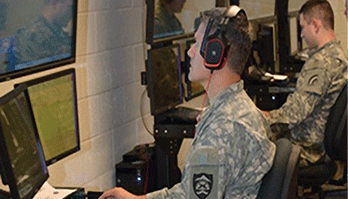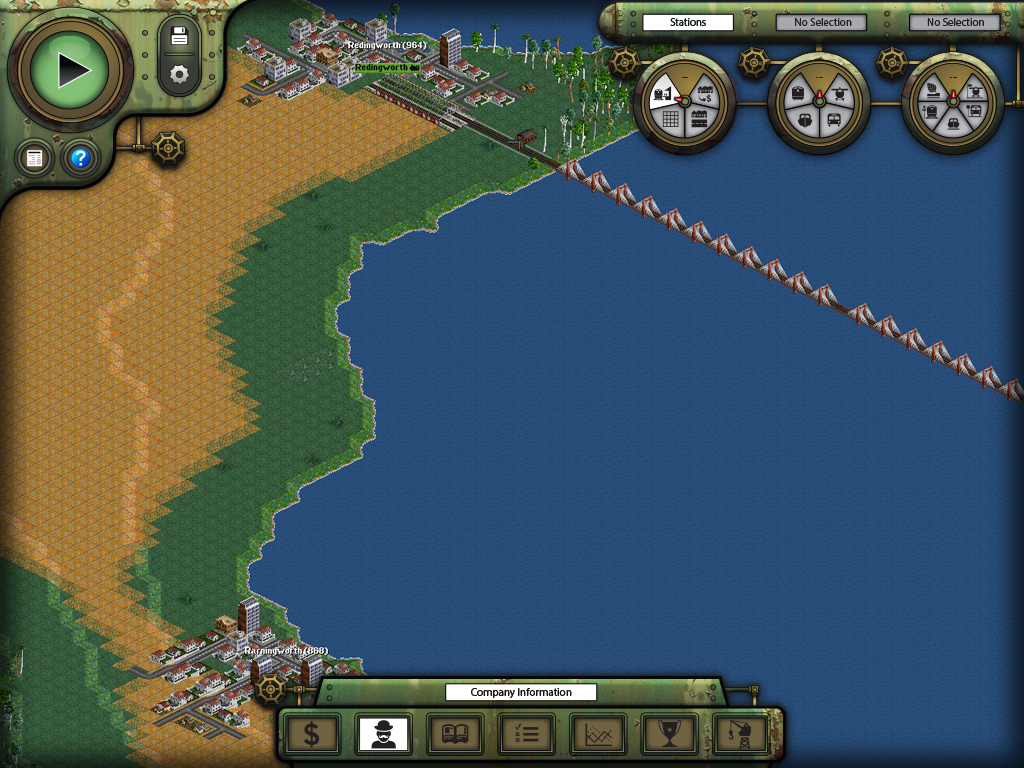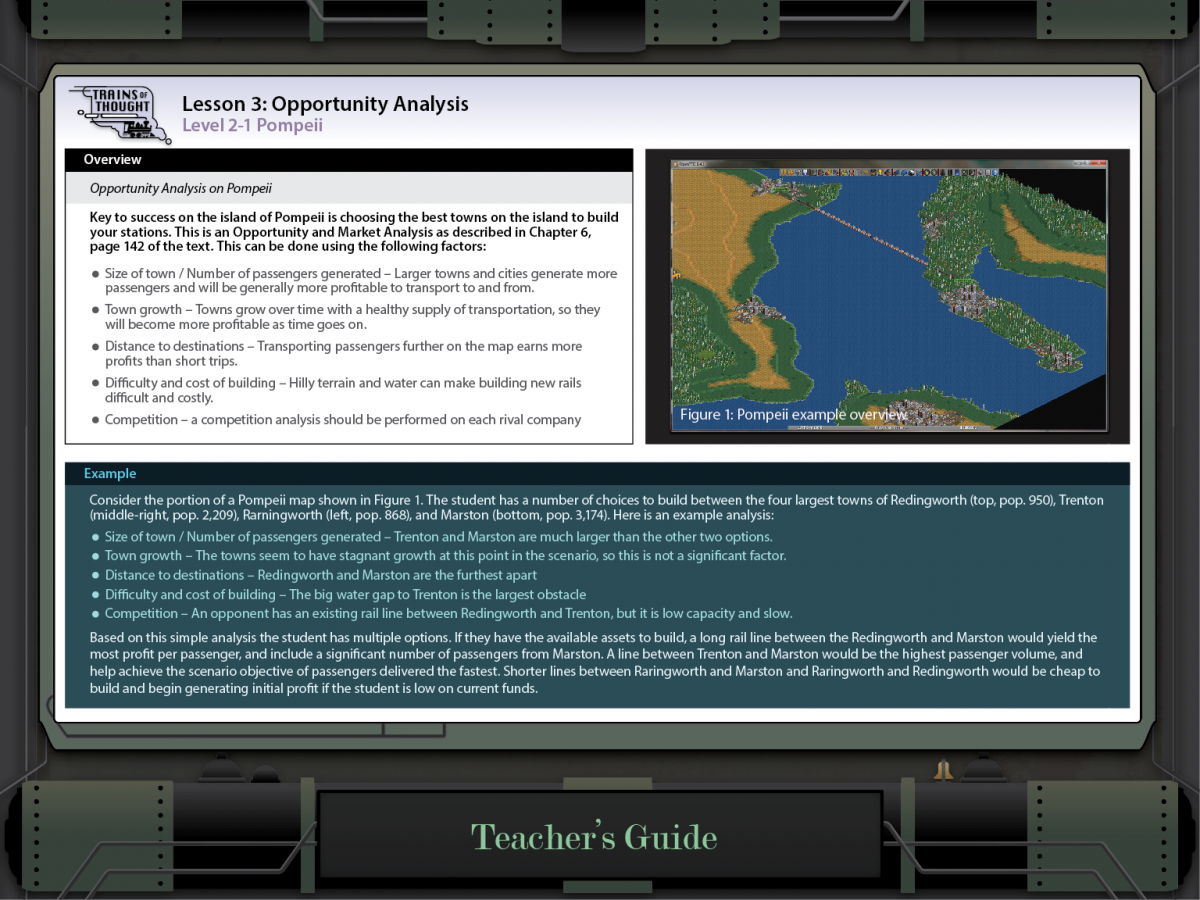TRAINS OF THOUGHT
Game-based methods
for teaching STEM skills
The Situation
Science, technology, engineering, and mathematics (STEM) education for K-12 students in the United States is falling behind global standards (National Science Board, 2007; US Department of Labor, 2007), and current educational practices are not sufficiently preparing students to compete in the global economy. These challenges may ultimately limit American innovation and adversely affect our nation’s long-term economic prosperity. To address this issue, students must develop a strong foundation in STEM principles, an understanding of how these principles relate to issues in the real world, and the entrepreneurial skills necessary to apply these principles to tomorrow’s challenges.

The Charles River Analytics Solution
Charles River Analytics developed a proof-of-concept for Trains of Thought, a game and curriculum module to teach STEM and entrepreneurship skills to high school students. The approach combines:
- Proven educational research (preparation for future learning and guided experiential learning with scaffolding)
- A popular, open-source business simulation video game, Open Transport Tycoon Deluxe (OpenTTD)
- Intelligent gameplay to balance educational objectives with fun
Trains of Thought teaches entrepreneurship skills by imbuing a successful open source game engine with core learning content. The figure below shows the Trains of Thought game interface design in which students build their transportation company by making intelligent business choices. The game levels are designed to directly support STEM and entrepreneurship learning while taking advantage of the honed gameplay of the underlying game engine. For example, the Gold Rush scenario forces students to borrow heavily and early with high interest rates. If the student does not borrow, growth will be exceedingly slow, but if the student borrows excessively, the interest will run the company into bankruptcy. Borrowing responsibly, investing in infrastructure and growth, and repaying loans promptly will see the student to victory.

Trains of Thought game interface
Trains of Thought also includes an interactive Teacher’s Guide that assists teachers with delivering core content of the lessons. The guide provides pointers to particular gameplay elements, and presents a detailed learning example based on specific in-game scenarios.

Trains of Thought teacher guides
The Benefit
The outcomes of the effort are expected to have significant broader impacts for society. Game-based learning research that is well-founded in educational theory and practical success can help to reverse the trend of declining US STEM and entrepreneurship education. This effect directly supports our future business leaders in driving American innovation and our nation′s long-term economic prosperity. The transformative concept of effective game-based learning has the potential to reach out to under-represented demographics in STEM-based entrepreneurial businesses—including women, African-American, Hispanic, and Latino populations—by providing students new ways to engage, interact, and learn from core educational content.
The knowledge gained from the effort also has significant implications to the scientific and educational communities for the design and application of game-based learning. Trains of Thought’s design principles, methods of development, and evaluation outcomes provide an underlying model for developing additional curriculum modules on a variety of subjects, enabling engaging STEM and entrepreneurship education in a wider context than the initial application. These results may also spur new research efforts to refine and extend our findings in game-based learning, creating more effective STEM and entrepreneurship education in future efforts.
Contact us to learn more about Trains of Though and our other capabilities.
This material is based upon work supported by the National Science Foundation under Grant No. IIP-1345724. Any opinions, findings, and conclusions or recommendations expressed in this material are those of the author(s) and do not necessarily reflect the views of the National Science Foundation.
